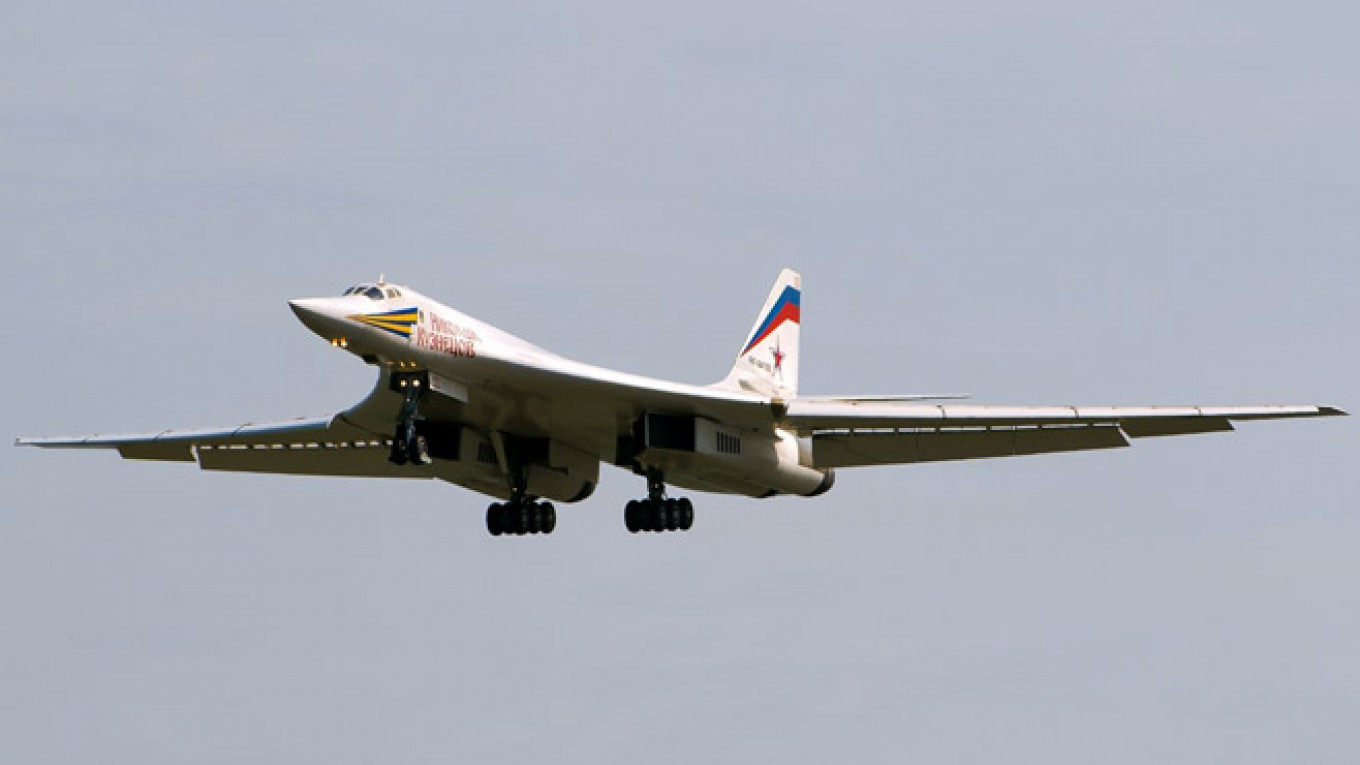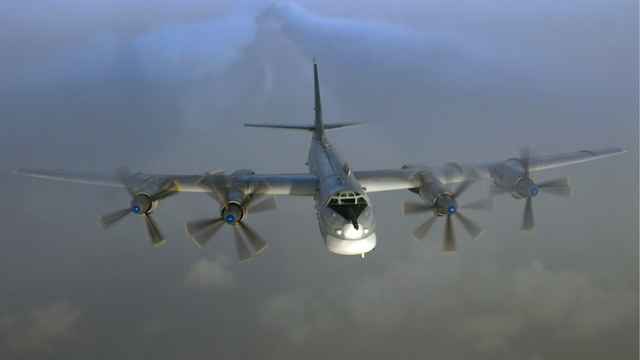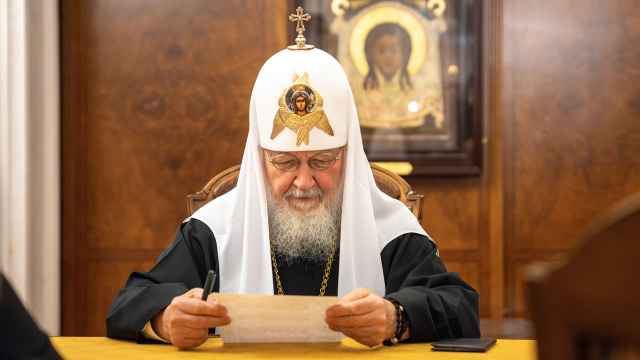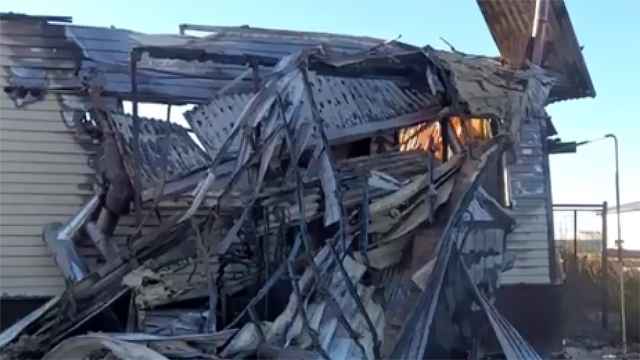With Russian strategic bomber patrols already raising hackles in the West, Defense Minister Sergei Shoigu on Wednesday called for renewed production of Russia's long-range supersonic Tu-160 bomber.
Code-named "Blackjack" by NATO, the Tu-160 is capable of moving at up to 2,220 kilometers per hour to deliver free-falling nuclear bombs and cruise missiles tipped with conventional or nuclear warheads within a range of 7,300 kilometers.
The move to reboot production of the plane, first manufactured in the 1980s, comes as Russia has stepped up military spending and bomber patrols near European airspace amid tensions over the crisis in Ukraine.
During a visit to the Kazan Aviation Plant in the republic of Tatarstan, about 900 kilometers east of Moscow, Shoigu said: "It is now essential that we apply ourselves to solving not only the issue of servicing and modernizing our long-range aircraft, but the revival of production of the Tu-160 rocket carrier," according to a press release on the Defense Ministry's website.
Shoigu added that the plane was "unique and decades ahead of its time. … No one has invented a better plane in the supersonic class."
The Defense Ministry also said Russia's air force would receive two Tu-160s and 12 smaller Tu-22M3 hypersonic bomber aircraft this year.
Russia currently operates around 15 Tu-160s, but "less than half are likely operationally available at any one time," Douglas Barrie, an analyst at the International Institute for Strategic Studies in London, told The Moscow Times last month.
Russia is in the middle of a decade-long 20 trillion ruble ($390 billion) rearmament program through 2020. An economic crisis has forced the government to make deep spending cuts, but defense expenditure has so far been spared the ax.
Tupolev, the Soviet design bureau behind the Tu-160, is also developing a next generation strategic bomber called the PAK DA that the company hopes will enter service in the mid-2020s.
A Message from The Moscow Times:
Dear readers,
We are facing unprecedented challenges. Russia's Prosecutor General's Office has designated The Moscow Times as an "undesirable" organization, criminalizing our work and putting our staff at risk of prosecution. This follows our earlier unjust labeling as a "foreign agent."
These actions are direct attempts to silence independent journalism in Russia. The authorities claim our work "discredits the decisions of the Russian leadership." We see things differently: we strive to provide accurate, unbiased reporting on Russia.
We, the journalists of The Moscow Times, refuse to be silenced. But to continue our work, we need your help.
Your support, no matter how small, makes a world of difference. If you can, please support us monthly starting from just $2. It's quick to set up, and every contribution makes a significant impact.
By supporting The Moscow Times, you're defending open, independent journalism in the face of repression. Thank you for standing with us.
Remind me later.






